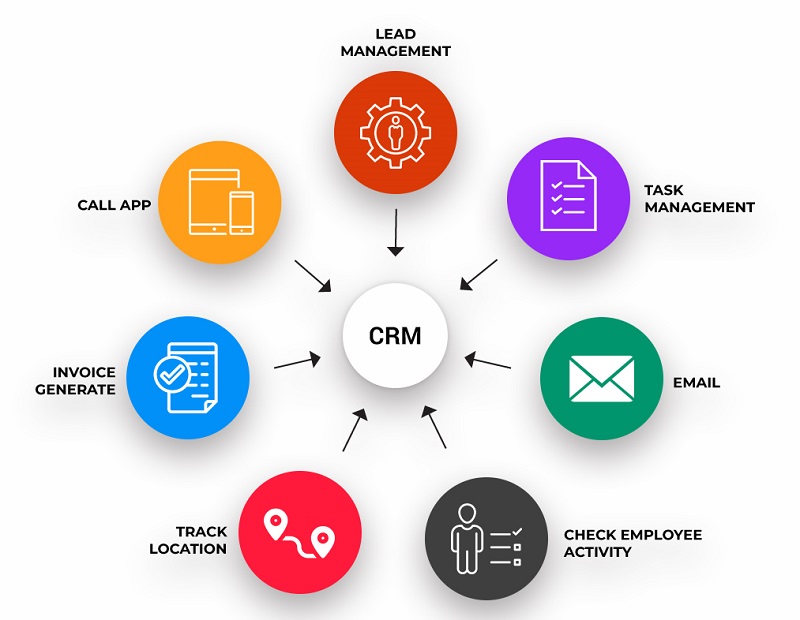CRM Software Market: Comprehensive Analysis and Future Outlook
The Customer Relationship Management (CRM) software market has experienced exponential growth in recent years, driven by the increasing need for businesses to enhance customer engagement, streamline sales processes, and improve operational efficiency. According to recent studies, the CRM Software Market was valued at over $46.3 billion in 2024 and is projected to grow at a compound annual growth rate (CAGR) of 11.50% from 2024 to 2032. The rising adoption of cloud-based CRM solutions, artificial intelligence (AI), and machine learning (ML) technologies has significantly contributed to this expansion. Businesses across various industries, including retail, healthcare, BFSI (banking, financial services, and insurance), and IT & telecom, are leveraging CRM tools to gain actionable insights, automate workflows, and foster long-term customer relationships. Additionally, the shift toward digital transformation and the growing emphasis on data-driven decision-making are key factors fueling market growth.
Market Key Players
The CRM software market is highly competitive, with several key players dominating the industry. Leading companies include Salesforce, Microsoft (Dynamics 365), Oracle, SAP, Adobe, HubSpot, Zoho Corporation, and SugarCRM. Salesforce remains the market leader, offering a comprehensive suite of cloud-based CRM solutions tailored for sales, marketing, and customer service. Microsoft’s Dynamics 365 has gained traction due to its seamless integration with other Microsoft products, while Oracle and SAP provide robust enterprise-grade CRM platforms. HubSpot and Zoho Corporation are popular among small and medium-sized enterprises (SMEs) due to their affordability and user-friendly interfaces. These companies are continuously innovating by incorporating AI, predictive analytics, and automation to enhance customer experience and maintain a competitive edge.
Get a Sample Report + All Related Graphs & Charts:
https://www.marketresearchfuture.com/sample_request/4943
Market Segmentation
The CRM software market is segmented based on deployment type, organization size, application, and industry vertical. By deployment type, the market is divided into cloud-based and on-premise solutions, with cloud-based CRM dominating due to its scalability, cost-effectiveness, and remote accessibility. Based on organization size, the market caters to large enterprises and SMEs, with SMEs increasingly adopting CRM solutions to improve customer interactions. In terms of application, CRM software is used for sales automation, marketing automation, customer service, and analytics. The industry verticals leveraging CRM solutions include BFSI, healthcare, retail, IT & telecom, manufacturing, and others, with retail and BFSI being the largest adopters due to their high customer interaction volumes.
Market Dynamics
The CRM software market is influenced by several dynamic factors, including drivers, restraints, opportunities, and challenges. The primary drivers include the growing demand for personalized customer experiences, the rise of omnichannel marketing, and the integration of AI and big data analytics into CRM platforms. Additionally, the increasing adoption of mobile CRM applications enables businesses to manage customer interactions on the go. However, data security and privacy concerns act as significant restraints, especially with stringent regulations like GDPR and CCPA. The high implementation costs of advanced CRM systems may also hinder SME adoption. On the other hand, opportunities lie in the expansion of AI-powered chatbots, predictive analytics, and IoT-enabled CRM solutions, which enhance real-time customer engagement. The key challenge for vendors is ensuring seamless integration with existing enterprise systems while maintaining data accuracy and security.
Recent Developments
The CRM software market has witnessed several recent developments aimed at enhancing functionality and user experience. Salesforce introduced Einstein GPT, an AI-powered tool that automates customer interactions and provides predictive insights. Microsoft integrated ChatGPT capabilities into Dynamics 365 to improve customer service automation. Oracle enhanced its CX Unity platform with advanced data unification features, while HubSpot launched AI-driven content generation tools for marketing automation. Additionally, Zoho Corporation expanded its Zoho CRM with new analytics and forecasting modules. These innovations highlight the industry’s focus on leveraging AI, automation, and data analytics to deliver smarter, more efficient CRM solutions.
Regional Analysis
Geographically, the CRM software market is segmented into North America, Europe, Asia-Pacific, Latin America, and the Middle East & Africa. North America holds the largest market share, driven by the early adoption of advanced technologies, the presence of major CRM vendors, and high digital transformation investments. The U.S. is the leading contributor due to the strong demand from industries like BFSI, healthcare, and retail. Europe follows closely, with countries like the UK, Germany, and France adopting CRM solutions to comply with data protection regulations and improve customer engagement. The Asia-Pacific region is expected to witness the highest growth rate due to rapid digitalization, increasing SME adoption, and expanding IT infrastructure in countries like China, India, and Japan. Latin America and the Middle East & Africa are also experiencing steady growth, fueled by the rising awareness of CRM benefits and improving cloud infrastructure.
Explore the In-Depth Report Overview:
https://www.marketresearchfuture.com/reports/crm-software-market-4943
Contact Us:
Market Research Future (Part of Wantstats Research and Media Private Limited)
99 Hudson Street, 5Th Floor
New York, NY 10013
United States of America
+1 628 258 0071 (US)
+44 2035 002 764 (UK)

